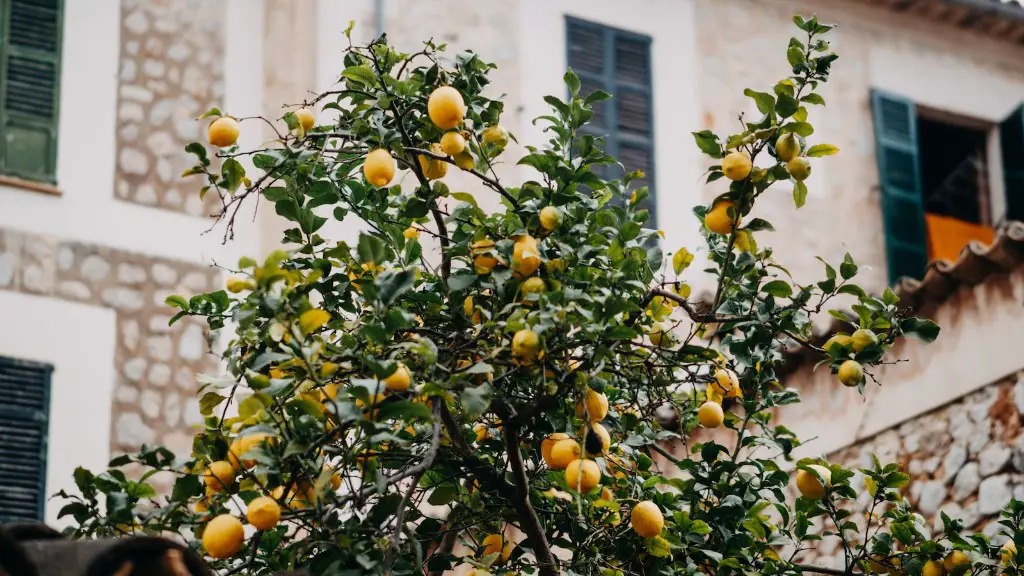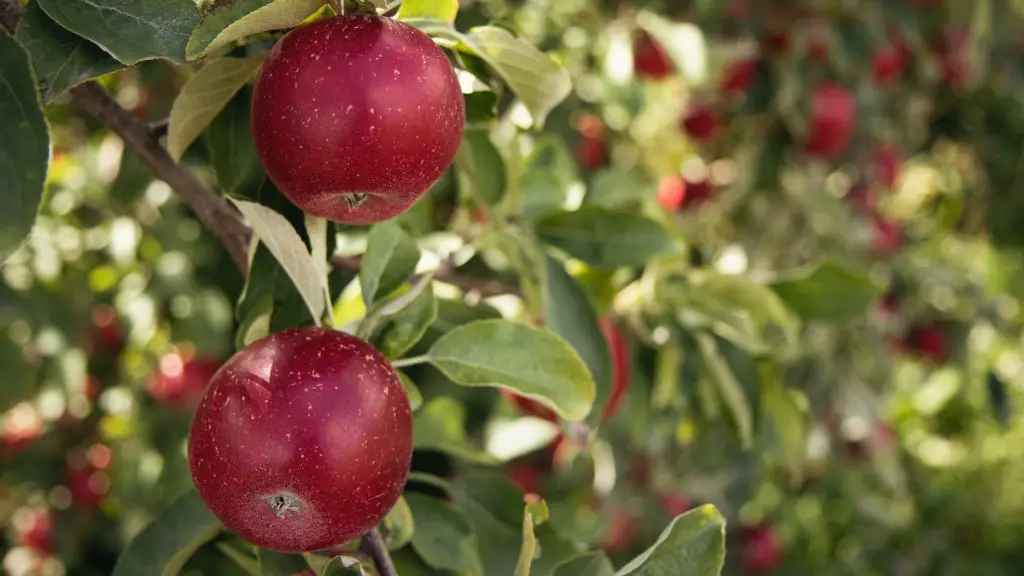Many individuals are perplexed when they start to notice their baby lemons falling off the tree. The reason behind this frustrating phenomenon is usually a combination of environmental factors and the time of year the tree is in. The following is an overview of why baby lemons fall off trees, and some strategies for prevention.
The most common reason for small lime or lemon fruits to drop off trees is environmental stress. This can take the form of prolonged periods of cold weather, significant soil fluctuations, or nutrient deficiencies. When a tree cannot absorb the necessary nutrients or is subjected to extreme temperatures, it will naturally drop developing fruit. Proper tree care is one of the best ways to prevent environmental stress from affecting your citrus tree and fruit.
The lack of pollination can also be a contributing factor to fruit drop on citrus trees. Bees, butterflies and other insects help pollinate citrus blooms and aid in the development of the fruits. When these pollinators are scarce, adequate fertilization of the flowers will not be achieved, and the resulting fruit often fails to develop or severely limited in size. As a result, you may find yourself with fewer fruits due to insufficient pollination.
It is also important to remember that fruit dropping is a natural process that occurs with all Citrus trees. Varieties of lime and lemon trees, for instance, will naturally shed developing fruit during their dormant period. Usually, this happens in late winter or early spring and usually, this is the result of environmental stress or pollinator issues.
Additionally, it is important to note that hanging fruit too early may result in weak branches or broken shoots. Citrus-producing branches are delicate, and as the tree starts to produce more and heavier fruits over time, these branches can weaken. When a branch becomes weak, the tree will naturally drop the fruit before it matures to reduce the strain.
When beginning to grow citrus, it is important to take the proper steps to ensure the success of the tree. Proactive care of the trees will help to ensure that the fruits you grow will reach full maturity. It is recommended that you fertilize regularly, monitor the soil conditions and water your citrus trees consistently to ensure optimal growth. Additionally, avoid planting in areas that are subject to extreme weather conditions.
What Action Can I Take?
There are certain steps that can be taken to prevent citrus fruits from prematurely falling off the tree. First, trees should be adequately fertilized on a regular basis. Additionally, moisture levels in the soil should be monitored and water should be applied as needed. Pollinator populations should also be maintained to ensure adequate fertilization of the blooms.
Additionally, pruning or thinning should be done to limit excessive branching or weight on the branches. Pruning or thinning will help to open up the tree canopy, allowing for better air circulation, allowing the fruit to mature properly. The branches and foliage should also be protected from frost. If cold temperatures should arise, you will need to protect the tree with frost-preventive blankets or heating lights.
Finally, it is strongly recommended that you are familiar with the annual fruiting patterns of the fruits you are growing. As previously mentioned, certain citrus trees may drop fruits while they are dormant. This is a completely natural process, and it helps the tree prepare for the mating season.
What to Avoid?
When attempting to address fruit drop, it is important to note what should not be done. When harvesting fruit, do not leave excessive clusters of fruits on the trees. Additionally, be sure to avoid heavy watering of the trees directly at the leaves, as too much water can lead to plant leaf damage or other deformities.
When pruning your citrus trees, avoid pruning excessively. Overpruning the tree can have the adverse effect of weakening the canopy, resulting in reduced fruit yields. Also, branches should not be tied with wire or rope as they can damage the bark, leading to weakened branches and excessive loss of fruit.
Fungal Diseases
A primary cause of citrus fruit drop is related to fungal diseases. Fungi are common pests of citrus trees and cause fruit or leaf spotting and can eventually may lead to premature dropping of the fruits. Regular applications of pesticides and fungicides to any affected areas of the tree can help in reducing the risk of fungal diseases and help to prevent fruit drop.
Improving USDA Hardiness Zones
If you are living in an area which is too cold for your citrus tree to successfully produce fruit, there are methods to improve the Cold Hardiness Zones for your tree. For instance, the soil can be enriched with organic material such as compost and mulch, an important part of fruit production and health of the tree. This can add extra insulation to the soil, helping to regulate soil temperatures and prevent frost damage to the roots of your citrus tree.
In addition, when temperatures drop, citrus trees can be protected with temperature-resistant blankets or containers. This is an effective way to ensure that the tree can remain productive and avoid the risk of premature fruit dropping.
Concepts to Remember
The process of baby lemons and limes falling off of a tree is often an inevitable phenomenon, however, paying close attention to the condition and environment of a tree can help to mitigate the risk of premature fruit drop. By monitoring and managing moisture and temperatures, pruning regularly and strategically, as well as adding organic materials to the soil, citrus growers may be able to prevent or at the very least reduce the number of dropped fruits.


